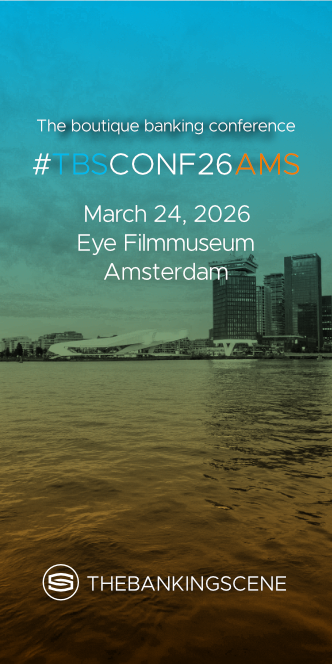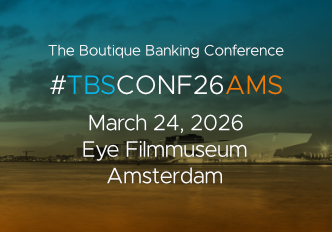
Insights & Opinions
Banking for Good: a Vision by Febelfin
Tue, 23 Feb 2021


In a very open dialogue, Karel Baert, CEO, and Claire Godding, Head of Diversity and Inclusion of Febelfin, joined us to talk about Banking for Good. We spoke about the different elements of ESG, we evaluated how the banking industry is doing in that respect, and we looked at the future.
Karel immediately set the tone for the rest of the session by saying: “I’m really convinced that we all do a better job when it has a purpose, and with banking for good, we define this purpose. So I think that it is not a phenomenon that is on the side. But it is a crucial element of banking today and even more in the future.”
Karel joined Febelfin in April 2020: “When I arrived, it was mid of April, the agreement between the government, the National Bank and the banks was just signed for the supportive measures (to counter the economic impact of COVID-19). We had to put them into place. That was a very intense period for the entire industry, the team and I.”
Social: creating a better place for people and relationships
How banks can help make lives better for people and society has rarely been so important as it is today. With the worst economic crisis since World War II and a 30% decrease in bankruptcies, it is clear that the real impact of the health crisis on the economy is yet to come. Karel is convinced that banks will need to keep taking the mission at heart to create a better place for people and society.
Since the start of the crisis, Belgian banks provided 144.000 payment delays, worth 24 billion, an enormous sum of money. Truth be told: delaying payments gives the companies oxygen in the short term, but a more structural solution will be required for many.
Karel: “We always said from the beginning of the crisis, we will help, we will support healthy companies and individuals through the crisis. The banking sector has now an opportunity to demonstrate that we are an ally of our stakeholders.”
Banks need to sit together with their clients and search for possible structural solutions to their problems, as partners. Some of these clients have enough with additional liquidity, and others may require equity. Banks cannot provide equity, but they have an extensive network to fall back on to find the best possible solution.
This partnership model for banks will require a lot of creativity, making a more inclusive approach more important than ever before. Claire’s valuable insights on the need for more diversity in the sector definitely contributed to the discussion. Because it matters.
“We are convinced that working with diverse teams is a question of optimising a company’s collective intelligence”, explained Claire. “It has been proven that teams tend to make better decisions than individuals and that diverse teams tend to make better decisions than homogeneous ones. Definitely, the financial sector needs to take the right decisions. Also, the more diverse you are, the more you have the capacity to be innovative.”
It demonstrates the importance of the “Women in Finance” initiative, an organisation and a charter to sign, with clear commitments on gender diversity for the ones that signed on. One of these commitments is to measure the glass ceiling within the organisation and to take action to progress in the near future to a more diverse management committee. Today Women in Finance brings together 40 members, representing in total 90% of the financial sector. The ones interested can find the Annual Report from October 2020 here.
The digital agenda of Febelfin is another element that came up a few times. They acknowledge that not everyone has jumped on the digital train yet. Banks have a responsibility, together with other stakeholders in society, to try to get these people on the digital train. In parallel, they need to provide solutions for those who never get a ticket for that train. The idea of collaboration with other stakeholders in society, a holistic approach to common goals for a better, more inclusive world is essential in dit discussion.
Environment: conservation of the natural world
To avoid wasting a good crisis, someone in the audience asked how banks can match the recovery from COVID-19 and the EGS and sustainability agenda. “Through this crisis, we see the necessity of ESG teams coming up more and more”, Karel said, “So I am firmly convinced that it is not supporting the economy or putting a priority on ESG. It can only work when it is an end story.”
This brings us to the next theme, sustainability and the environment. Sustainability is high on every financial institution’s agenda today, and it will rise even more tomorrow. Big corporates know how they can benefit from the green initiatives from Europe. As a partner for SMEs, banks have a responsibility, together with other sector federations, to inform clients about that, according to Karel, to achieve a greener world.
Banking provides liquidity to those who need it and takes excess cash to help customers save and invest. With Towards Sustainability, the Belgian banking sector took the first steps to more transparency related to sustainability in investment products. An independent organisation, the Central Labeling Agency, with a board composed of different members from society, issues this label to investment funds that meet their sustainability standards.
300 billion euro on underlying investments are labelled this way, making it the most comprehensive and inclusive label in Europe for the moment, according to Karel. “It goes further than a pure Belgian initiative. Foreign companies also ask us to do the labelling because they want to sell their products in Belgium. About 85 financial institutions have asked to label their products from over 10 different countries,” he explained.
He confessed that there are stricter labels that make it harder to get certified. It is an explicit choice of the Towards Sustainability Initiative to maintain the right balance between seriousness and the possibility to inspire a larger market to invest in more sustainable assets.
“Banks are enablers,” explained Karel. “They play an essential role in making the economy turn around. They have a big societal responsibility. Let’s handle this responsibility with modesty, care, and determination because it’s an important role we play there.” Every bank is free to live to its values and identity. With initiatives like Towards Sustainability, Febelfin provides tools to assist banks that like to play a role in the sustainability agenda.
Governance: standards for running a company
Banks realise the responsibility they have towards society, and they learned their lessons from the past. In terms of banking supervision, the European Parliament entrusted the ECB to streamline and coordinate banking supervision in the eurozone and created the SSM, which was a good initiative and which works well today.
Add to that the enhanced corporate governance for the composition and functioning of boards, the function of risk management is better protected, and new rules for diversity. All this has created a healthier environment.
There are always things that can be improved, and the industry should aim to do better in the future. But overall, Karel’s evaluation is positive: the financial sector learned its lessons.
On the importance of diversity in a board, Claire clarified: “What we see on a board is when you have more diversity, you usually get more questions, which is all fundamental. I mean, the biggest danger of a board is what you call groupthink. When individuals stop thinking by themselves and just adhere to the common goal without questioning it, it’s extremely dangerous.”
This required diversity goes further than gender diversity. Also, generational diversity should be taken into account or for example, cultural diversity. Claire: “it’s the mix, which will make sure that people feel safe, not ridiculous, ask questions, question some decisions, and so on.”
Conclusion
The efforts that the industry takes to create a better world are sometimes underestimated, in my opinion. With these round table sessions, I am glad to provide a forum for people like Claire and Karel to inspire others to be part of the movement towards Banking for Good.
I like to close this post with a last quote from Karel on purposeful banking:
“If you say, as a bank, you have a purpose, sorry, then this should come from top to everyone in the organisation, all your processes, you should be consistent. And what you preach, you should also do in reality. If you achieve in doing that, I think then you are the king. That will attract a lot of new clients and new customers.”
That is the future of banking, in my opinion.
Would you like to attend one of our Afterwork sessions as well? Have a look at our program: The Banking Scene - Afterwork


